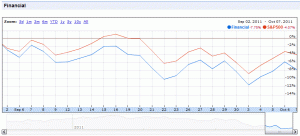First, a fact: There’s a social revolution going on all over the world, and only recently at the United States in the form of the #occupywallst movement. We will focus on the latter. A lot of information is available in sites like wearethe99percent, OccupyWallSt.org, NYCGA, and more. The upcoming global event is 15october‘s #globalchange.
Another fact: The media is highly biased, especially in sensitive issues such as the new era of revolutions. Yes, that’s a fact, and there are plenty of ways you can convince yourself in it:
- Make your own research: Chat directly with some people who have actually been there. Don’t ask them about the arrests, since there the gap between reality and its presentation in the major networks may be just a bit too fantastic for you to believe. Instead, ask for other examples for bias in the media: Ask about events they witnessed and how they were covered in the media.
- Make your own research: Choose a few of your favorite newspapers or other news sources on the web. Search them for some term like revolution or occupywallst, then compare the results you get. This may require some work, but the results may astonish you. You’re going to realize that one source prefers to cover that topic in a more forgiving way, while the other source is far more harsh. If you have any interesting insights from your study, do share them with us!
- Participate in a few meetings yourself. Again, check the links above for the events calendar to join the one you think you’ll find interesting, although the best meetings are the “general” ones. Do it today, after work, on your way back home. It might change your point of view on a lot of things. Oh, and don’t forget to return here and thank me for the advice.
So there’s a revolution, and the media is biased. Why should we care? Well, first, to lead a better life in a better world, you might want to open your eyes and communicate more and more with other people, and not through biased negotiators.
Second, it’s going to affect your pocket. Your cost of living, your retirement fund, your house’s value, your happiness. And that’s why we’re here today, to provoke your thoughts on the subject. We can and should learn from the recent social revolutions in various countries, including the more advanced and democratic ones (Spain and Israel for example). In those recent revolutions, the gap between the media’s cover and reality became wider as time went on (as time goes on. None of these revolutions has officially ended). And, as it appears, twisting the truth too much is not a sustainable action. If the protesters don’t get decent opportunities to be heard, they will just go on with their fight, and some might choose the more violent paths.
To conclude, here are a few more points for thought:
- The #occupywallst protest began (begins) as an anti-banks protest, so it may be interesting to think about the opportunities in investing in the Financial Sector. The riskier ETFs include NYSE:FAZ and NYSE:FAS, if you have the nerves… and gambling rush. This chart from Google Finance illustrates the recent turbulences in the Financial Sector, showing a steeper drop in the Financial Sector since the revolution has begun (we do not claim any causality yet, merely point out the neat correlation).
- However, judging from the recent revolutions, the movement is going to expand to almost all social and economical areas. Simply because it is concerned with deeper moral values. It’s a revolution of the 99%. It’s a movement with weird romantic ideas, like social justice, whose exact meaning will become clearer to all in time…
- If the media is indeed biased, then the #occupywallst (and similar movements) are not well represented in the news. In other words, they have much more impact than reported. Remember — you don’t need the media’s support in order to make some changes. Boycotting some institutions or specific businesses does not require the item to be in the top news. It merely requires a critical mass of consumers who had enough.
- In this overly crowded world we live in, it takes one stupid and violent person to get the things a little out of control. This person may be a cop, a protester who is sick of being too nice to the authorities, or just a random fella using the opportunity to let some steam out. Things can also “get out of control” in a non-violent way. A senior reporter may quit his job. Or it may be a senior government official, or a senior banker, or various other black swans. In any case, if and when things do get out of control, the media will have to report a bit more accurately, and that current “gap” (between the reality of the revolution and how it’s shown in the news) will have to be filled immediately. Filling such gaps too quickly is dangerous and may provoke further crises…

1 comment for “The Financial Sector from a revolutionary point of view”